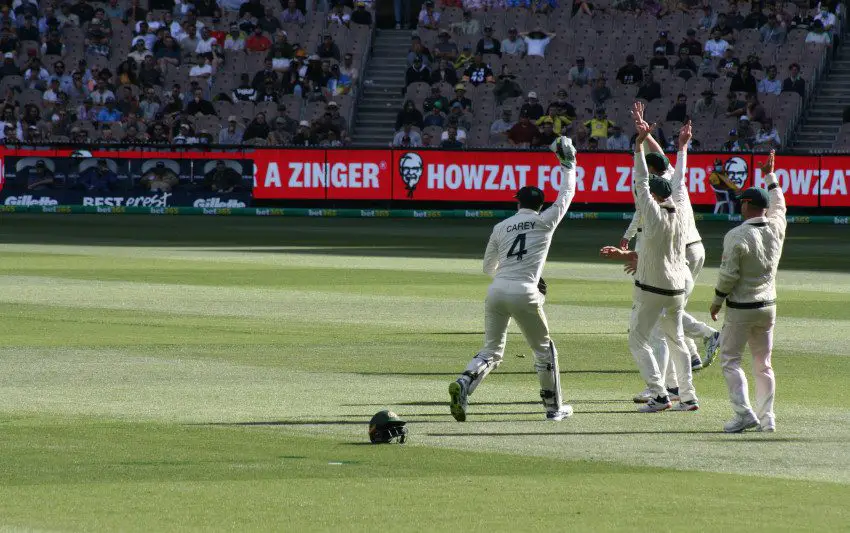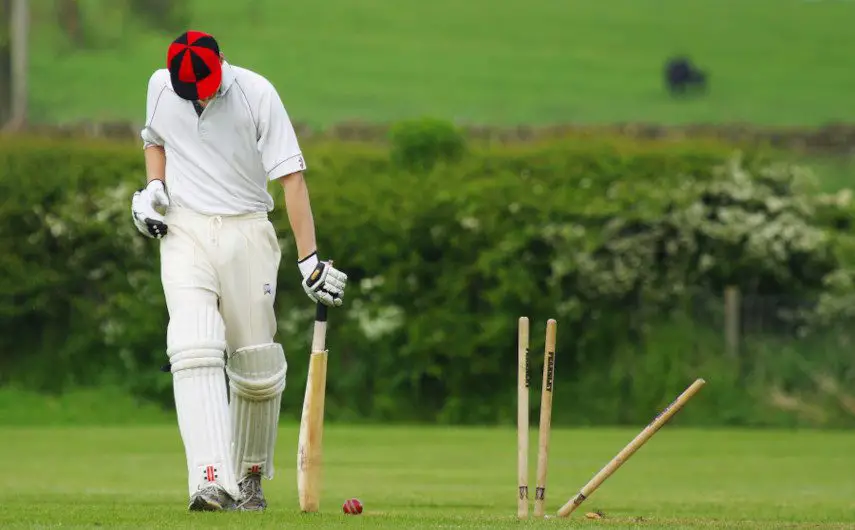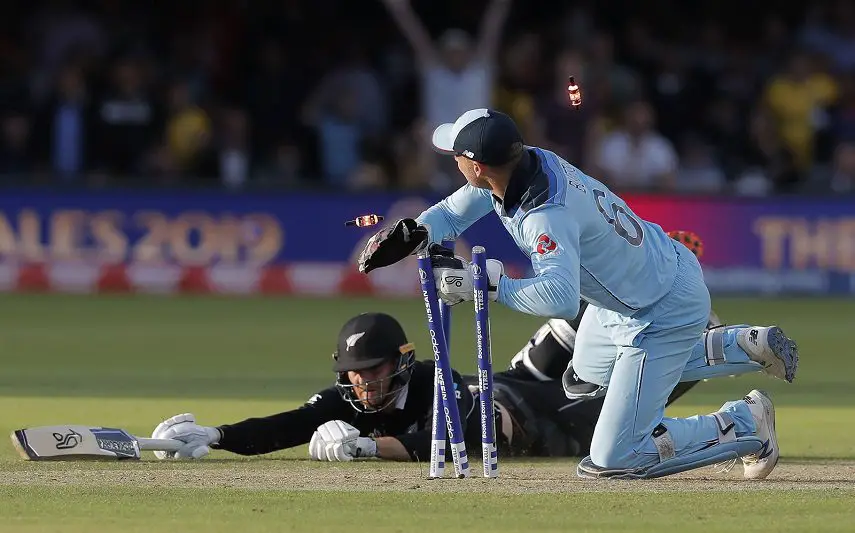Table of Contents
As a bowler, you need to appeal to the umpire at times in order for them to make a decision so let’s look at ‘howzat’ and the appeal process.
What Does Howzat Mean in Cricket?
Howzat is an abbreviated version of ‘how’s that’. The bowler, wicket keeper and any member of the fielding side who wants to join in, can ask ‘howzat’ if they want the umpire to rule on an ‘out’ decision.
Howzat is the appeal in cricket and it is usually heard in relation to LBW, Run Outs, Stumpings, Bat Pads and Caught behind the wicket decisions.
Appeals Law in Cricket
Is it Necessary to Appeal?
The regulations relating to appealing are covered by Law 31 of the game. The ruling states that the fielding team must appeal for an umpire to make a decision.
In cases where the batsman is bowled or has been caught in the outfield, the decision is obvious. Unless there has been a no ball, the batter is clearly out and there is no need for an appeal.
However, with LBW decisions and those relating to caught behind the wicket, the outcome isn’t obvious. The umpire must not make a decision unless there is an appeal and that’s why the bowler, keeper and other members of the fielding side will shout ‘Howzat’.

How Do Appeals Work?
If a decision needs to be made by the on-field officials, the fielding side must make that appeal. If, for example, the ball has struck the batsman’s pad and an LBW call is necessary, the bowler and the fielding team will appeal.
Appeals should be made to the relevant official. For example, if the team are appealing for an LBW or a caught behind decision, they should direct their appeal to the standing umpire. The bowler’s end umpire is right behind the bowler’s arm and is perfectly placed to make the decision.
The other umpire standing at square leg simply cannot make a judgement on LBW decisions and those that are caught at the wicket, thus cannot answer appeals of this type. Bat pad catches by close in fielders also fall into this category.
However, stumpings and run outs that occur at the striker’s end should be referred to the square leg umpire. While at square leg, the umpire has the best view of any line decisions at the batsman’s end so all those decisions should be referred to the man or woman in that position.
When the appeal is registered, the umpire will make their decision. Of course, there is the option in certain televised games to use the DRS review but the appeal must still be lodged with an umpire before this can happen.
How to Appeal
The important point to remember is that the appeal must be clear. The umpire should be in no doubt that you are asking them to make an on-field decision.
If you watch the game on television, you may see a bowler say ‘how..’ and then tail off. They won’t even look at the umpire. This probably means that the batter is not out and the bowler has started to appeal before realising it’s not worth it. The umpire will not respond in these circumstances.
If you really want the umpire to decide, look directly at them and say Howzat. You can say it as loudly as you want but don’t prolong the appeal. You don’t want to appeal excessively and break the code of conduct.
Once it’s obvious that the umpire knows that you’re asking a question, my advice is to stop the appeal and wait for them to make their decision.
Other Ways to Appeal
There is nothing in the Laws to specify how a fielding team should appeal. The phrase ‘Howzat’ has been in place for many years and it’s the expected way of doing things. An umpire won’t turn down an appeal because the phrase hasn’t been used correctly but the bowler and his teammates need to make it clear that they are asking the official to make a decision.
If you’re watching a game on television and the stump mic is switched on, you might hear the words ‘how’ or ‘zat’. Both are abbreviations of Howzat and they are acceptable in terms of making an appeal.
Unethical Appealing
This section is covered by the International Cricket Council’s (ICC) Code of Conduct. It refers to aggressive or unethical appealing and it also covers sanctions that are put in place as a result.
If a team appeals excessively, especially if they are aware that the batsman is clearly not out, this can come under the umbrella of unethical conduct. Similarly, if the appeal is made in a way that the officials feel intimidated, these types of acts can also be sanctioned.
So what can be done about this? If the umpires feel that a team has crossed a line and have breached the code of conduct, they can report them to the match referee. The referee will assess the situation and they have the power to implement fines or match bans.


